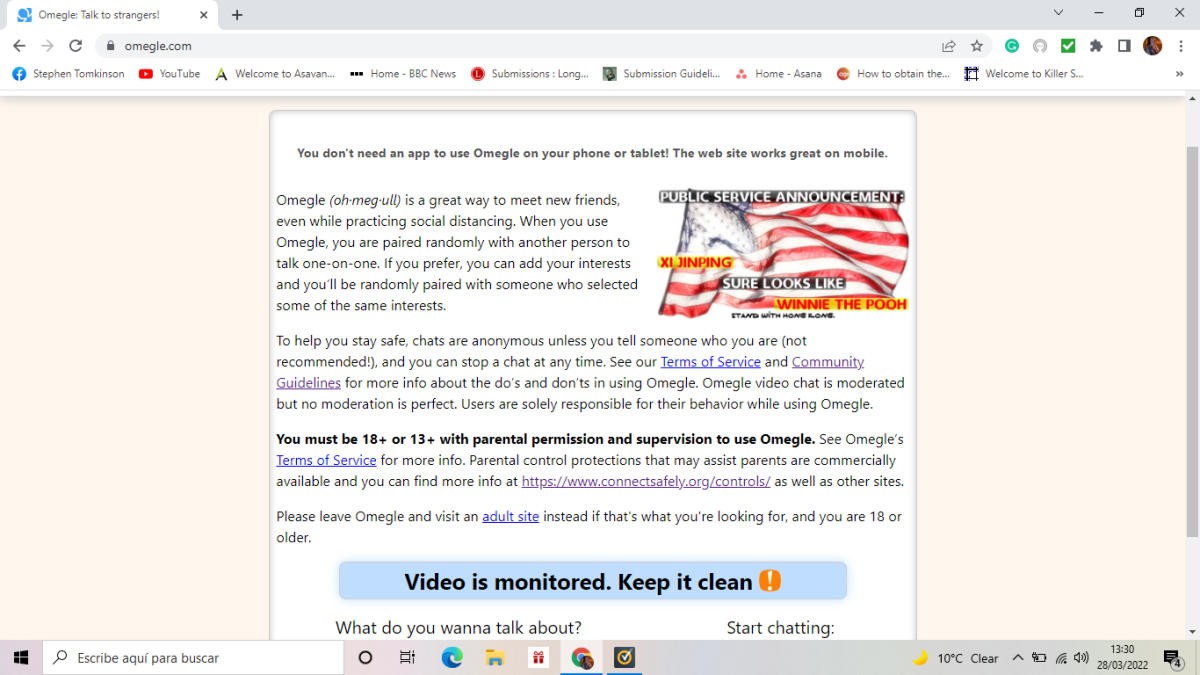Gilles Lambert on Unsplash The internet has changed our lives—a statement that is so obvious that it hardly needs saying. In 1999, Tim Berners-Lee, the inventor of the World Wide Web, published a book about creating his vision titled Weaving the Web, in which he says: “I would have to create a system with common rules that would be acceptable to everyone. That meant as close as possible to no rules at all.” Indeed, for most users, the web is an inexhaustible source of ideas and information giving access to information on everything from rocketry to recipes. It allows us to communicate effortlessly across distances and exchange ideas with the entire planet. Now, everyone with access to the internet has a voice. Life without the World Wide Web would be unimaginable to most of us. Berners-Lee was surely right to say that it had to have as few rules as possible. Its openness depends on freedom. The web isn’t, and nor should it be, the preserve of the high-minded. There’s infinite space and room for all. Unfortunately, this freedom and space entail that much content is simply nonsense. Nonsense we can deal with. Malice, cruelty, and predation present a much greater problem. There is room for everyone, but not everyone has good intentions.
A Brief History of Omegle
Leif K-Brooks founded Omegle in 2009. He was just 18 years old, a young man from Vermont who wanted to create a chat platform that was as automated as possible. His creation, Omegle, was immediately successful. At first, the platform was restricted to text only. But just a year later, it expanded to allow for video chats as well. The Covid pandemic boosted the use of the platform to a point where it has around 65 million visitors every month. When I looked a few moments ago, Omegle’s website stated that there were 39,000 users on the site. That Leif K-Brooks had succeeded in creating a popular platform for which there was a demand is undoubted. That he wanted Omegle to be as unrestricted as possible might reflect a youthful idealism. But perhaps he was too young to fully understand the implications.
How to Use Omegle
Omegle is simple to use. You don’t need to register, and once on the platform, a user is paired with a stranger. You can list your interests and be paired with someone who shares some of those interests. Most chats now are on video.
Red Flags
Where to start? So much about this platform is vulnerable to abuse. First, let’s look at a few quotes from Omegle’s home page: “To help you stay safe, chats are anonymous…” Yes, and this is supposed to be one of the platform’s main attractions. Omegle indeed recommends that users do not give out personal information. However, it’s not too difficult to persuade an impressionable youngster to reveal too many details. “Omegle video chat is moderated but no moderation is perfect. Users are solely responsible for their behavior while using Omegle.” This is simply not good enough. The BBC (link to the article below) reported on how easy it was to access adult videos and hook up with children. The report makes for very disturbing reading. It is possible that Omegle has improved its procedure since the BBC’s piece came out but there are still grave problems. To state that users are responsible dodges the question. As the platform is anonymous, people can do what they like. “You must be 18+ or 13+ with parental permission and supervision to use Omegle” There is no age verification process in place. The BBC reporters found that they were being paired with very young children. The point about parental supervision is laughable. Even the most careful parent can’t monitor a child 24 hours a day. Parental control protections to block access exist and, to be fair, Omegle provides a link. But parents can’t control access through a friend’s device. “Omegle - Talk to Strangers!” This is the banner that runs across the homepage. It runs contrary to the advice that most parents give their children. Many kids will see this as an exciting dare. They may see it as a challenge and an opportunity to talk over their problems with a disinterested party. Well, yes. But there are a lot of people out there preying on the vulnerable. That videos are not recorded by Omegle (or so they claim) is irrelevant. External screen recorders are readily available. What then happens to the recording is anybody’s guess.
Responsibility
So Omegle tells us that users are responsible for their behavior on the platform. I don’t think that anyone would disagree with that. However, the statement is essentially meaningless. If I go out and rob a bank, then, unless I suffer from a psychological condition, I am responsible. However, my desire for money is stronger than my sense of social responsibility. It’s the same with some users of Omegle—their desires outweigh any sense of responsibility. Really, there don’t need to be many of these predators to make the platform dangerous. Omegle matches strangers randomly. There is no reason why a ten-year-old can’t find herself chatting to a 60-year-old. In the United States, various law firms are taking out lawsuits against Omegle. Here is a quote from one of them. Dolman Law Group operates out of Florida: “Police forces and special task units are getting more and more privy to online predators and websites like Omegle. Because of this, arrests are being made, sting operations are in use, and criminals are being held accountable. But what about the victims and their families? What are they supposed to do after their child has been victimized online?”
Final Thoughts
Omegle is not the only dubious site on the web. But this platform is a particularly egregious example of how not to run a chat room. The advice it gives users could be seen as an attempt to shift responsibility to users alone. Wherever people gather—a school, for example—rules are in place to govern behavior, and there are ways to deal with infringements. There is no reason that this should not happen in the virtual world.
More About Omegle
https://www.bbc.com/news/technology-56085499Omegle links up random people for virtual video and text chats, and claims to be moderated.
This content is accurate and true to the best of the author’s knowledge and is not meant to substitute for formal and individualized advice from a qualified professional. © 2022 Stephen Tomkinson




